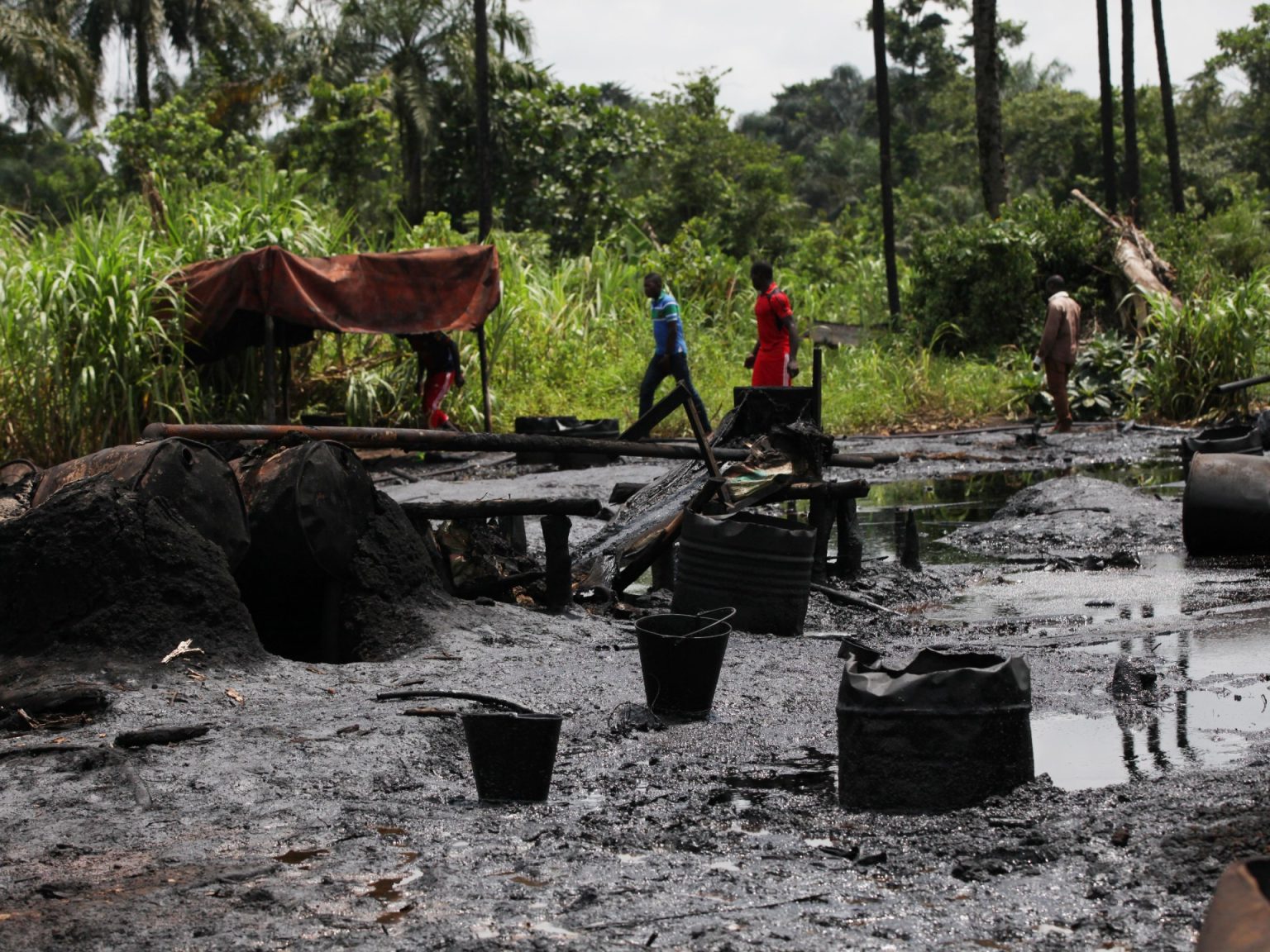The Niger Delta, a region of intricate creeks and swamps in Nigeria, is plagued by rampant oil theft. Under the cover of darkness, heavily armed militiamen, often disguised as technicians, arrive in speedboats. They expertly rupture pipelines, siphoning crude oil into mini-drums and transferring it to barges. These barges, under the protection of the speedboats, then navigate the complex waterways to rendezvous with waiting foreign vessels offshore. This illicit operation, often conducted with apparent security complicity, has become commonplace, particularly in Rivers State, Nigeria’s oil capital. This industrial-scale theft deprives the nation of millions of dollars monthly, significantly impacting communities and the wider economy. In 2022 alone, Nigeria lost a staggering $23 billion in oil revenue, contributing to its temporary decline as Africa’s leading oil exporter.
Rivers State, a crucial hub in Nigeria’s oil industry, has taken proactive steps to combat this pervasive crime. Recognizing the severity of the problem, the state government has invested in military-grade gunboats to strengthen waterway patrols and response times, focusing on vulnerable submerged pipelines. Complementing this, local vigilante groups have been established to further bolster security around oil facilities. This multi-faceted approach underscores the state’s commitment to protecting its vital economic interests and the surrounding ecosystem. The impact of oil theft reverberates throughout Nigeria, a nation heavily reliant on oil revenue for approximately 90% of its government earnings. The theft not only diminishes revenue but also leads to devastating environmental consequences through countless oil spills, impacting local communities dependent on farming and fishing.
The economic ramifications of oil theft are profound. Thousands of oil spills have occurred since oil’s discovery in Nigeria, largely due to these illicit activities. The consequent drop in production severely impacts government revenue, hindering its ability to invest in essential public services. Furthermore, the spills have a devastating impact on the environment and the livelihoods of local communities, leading to health problems and destroying traditional sources of income. To counter this, the Rivers State government is focusing on investing in health, education, and infrastructure in vulnerable areas, aiming to provide alternative opportunities for young people and dissuade them from participating in oil theft. The state also acknowledges the need for environmental remediation, highlighting the long-term damage caused by this criminal activity.
Nigeria’s oil production is showing signs of recovery, rising to an average of 1.8 million barrels per day from a low of 1.3 million in March. This resurgence is attributed to enhanced security measures and collaboration with joint venture partners. Sustaining this progress requires ongoing security efforts and increased investment from international oil companies. Experts believe that increased oil production is crucial for stabilizing Nigeria’s struggling economy, which has been grappling with soaring inflation and a devalued currency due to recent economic reforms. The government hopes that the increased oil revenue will mitigate the effects of inflation and improve the economic situation, although public discontent remains high due to the rising cost of living.
Beyond security measures, addressing the root causes of oil theft is crucial for long-term success. Poverty and lack of opportunities drive many, including young teenagers, to participate in this dangerous and illegal activity. Therefore, a comprehensive approach involving economic development, community engagement, and a shift in societal attitudes is necessary. Remediation of the polluted environment, diversification of the economy, and educational initiatives are key to providing alternative livelihoods and fostering a sense of responsibility towards the environment. Addressing the underlying socio-economic issues that fuel this criminal enterprise is essential for achieving lasting change.
The fight against oil theft in Nigeria is a complex and multifaceted challenge. While significant progress has been made in boosting oil production and implementing security measures, the long-term solution requires a holistic approach. This includes sustained security efforts, investment in affected communities, environmental remediation, and a fundamental shift in societal attitudes towards oil theft. Only through a combination of these strategies can Nigeria effectively combat this crime, protect its environment, and secure its economic future. The government acknowledges the ongoing battle but remains optimistic about its ability to further curb oil theft and restore the nation’s position as a leading oil producer. This, in turn, is expected to stabilize the economy, alleviate the rising cost of living, and improve the lives of Nigerian citizens.

